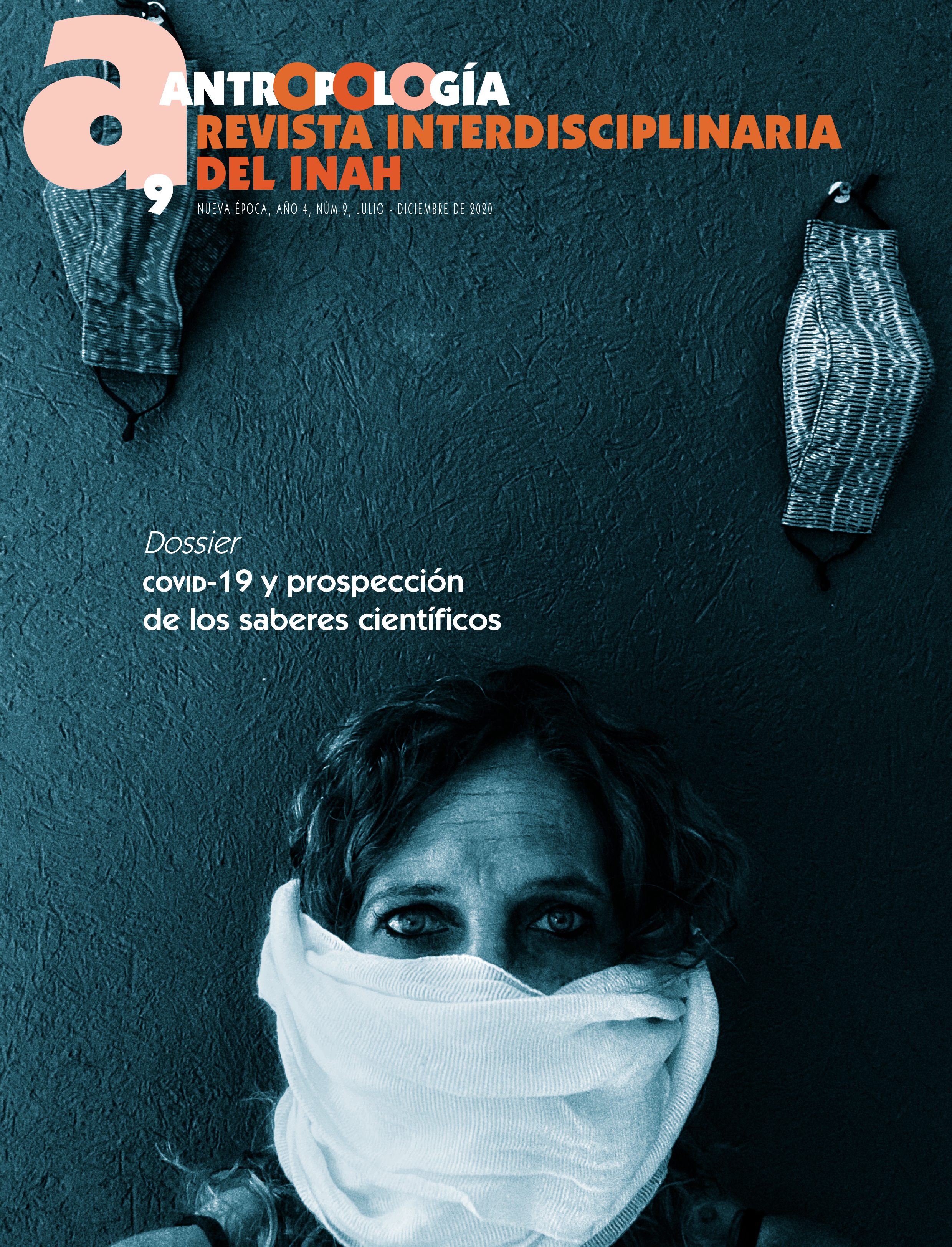Make the World a Better Place. Ideologized Narratives in Academia and the Articulation of Humanities During the sars-cov-2 Pandemic
Published 2022-01-28
Keywords
- Ideologized narratives in academia, humanities, recurrent conceptual-discursive patterns.
How to Cite
Abstract
The coronavirus visibilizes the increasing fragmentation of the different scientific disciplines in the humanities, often sacrificing the academic-intellectual model that reflects upon society and its processes in favor of a more competitive-academic model. These late modern academic dictates obey mostly two ideological narratives of ‘making the world a better place’ and turning knowledge into an ‘intellectual capital’. As a result, we see a promotion of commodifiable scientific studies that promise to push societies to new levels of development. In this contribution we discuss these ideological narratives in academia and their effect on the articulation of the humanities during, and about, the sars-cov-2 pandemic.
Downloads
References
- ANDERSON, Maxwell, “Silicon Valley is more than a place. It’s an idea. What does that idea mean?”, The Medium, 7 de marzo de 2017, recuperado de: <https://medium.com/the-weekend-reader/silicon-valley-eats-the-world-5b4076ec65b>.
- BAUMAN, Zygmunt (1991), Modernity and Ambiguity, Londres, Blackwell.
- CYRANOSKI, David, Natasha GILBERT, Heidi LEDFORD, Anjali NAYAR y Mohammed YAHIA, “Education: The PhD Factory”, Nature, vol. 472, 2011, pp. 276-279 (2011), recuperado de: <https://www.nature.com/articles/472276a>.
- ETH ZURICH (s. f.) [Información de contacto], recuperado de: <https://www.linkedin.com/school/eth-zurich/>.
- GÖBEL, Johannes (2019), “Germany’s top universities”, deutschland.de, recuperado de: <https://www.deutschland.de/en/topicknowledgehigher-education-and-research/an-overview-of-universities-of-excellence-in-germany>.
- HART, Christopher (2015), Critical discourse studies in context and cognition, Ámsterdam /Philadelphia, John Benjamins.
- JÖRG, Ton (2011). New thinking in complexity for the social sciences and humanities. A generative, transdisciplinary approach, Nueva York, Springer.
- NAIDOO, Rajani (2008), “Entrenching international inequality”, en Joyce E. CANAAN y Wesley SHUMAR (eds.), Structure and Agency in the neoliberal university, pp. 84-99, Londres, Routledge.
- PARKER, Clifton B. (2016), “Quality of schools is critical for economic growth in developing countries, Stanford expert says”, Stanford News, 8 de febrero, Universidad de Stanford, recuperado de: <https://news.stanford.edu/2016/02/08/education-knowledge-capital020816/#:~:text=February%208%2C%202016-,Quality%20of%20s-chools%20is%20critical%20for%20economic%20growth%20in%20devel-oping,knowledge%20capital%22%20of%20a%20nation>.
- PFLEGER, Sabine (2019), (coord.) Somos en el lenguaje y a través de él. Lenguaje como sistema complejo en el estudio de fenómenos sociales, México, ENALLT-UNAM.
- _____ (2020, en preparación), La universidad pública: el capital más valioso para la Nación. El framing discursivo del giro identitario de comunidad epistémica a comunidad empresarializada en la universidad pública; un estudio de caso de la Universidad Nacional Autónoma de México, México, ENALLT-UNAM.
- _____ (2020a, en dictamen), “La construcción discursiva-simbólica de los trabajadores de salud en la pandemia SARS-CoV-2 en México: la enfermera y el epidemiólogo”, Rutas de Campo, México, INAH.
- POWELL, Walter, y Kaisa SNELLMAN (2004), “The knowledge economy”, Annual Review of Sociology, vol. 30, núm. 1, pp. 199-220, DOI: 10.1146/annurev.soc.29.010202.100037.
- RECKWITZ, Andres (2017), Die Gesellschaft der Singularitäten. Zum Strukturwandel der Moderne, Berlín, Suhrkamp [English translation: The Society of Singularities, Cambridge 2020).
- _____ (2019), Das Ende der Illusionen. Politik, Ökonomie und Kultur in der Spätmoderne, Berlin, Suhrkamp.
- SCHULTZ, Theodore (1968), Valor económico de la educación, México, UTHEA.
- SCHÜTZ, Alfred (1981), Der sinnhafte Aufbau der sozialen Welt, Konstanz, Suhrkamp.
- SMYTH, John (2017), The Toxic University: Zombie Leadership, Academic Rock Stars, and Neoliberal Ideology, Huddersfield, University of Huddersfield / Palgrave Macmillan.
- UNIVERSIDAD AUTÓNOMA METROPOLITANA (2018), Revista digital de la UAM, 6 de abril, recuperado de: <http://campusmilenio.mx/index.php?option=com_k2&view=item&id=10644:la-uam-siembra-cada-dia-en-sus-alumnos-la-posibilidad-de-pensar-en-un-mundo-mejor&Itemid=256>.
- UNIVERSIDAD DE CAMBRIDGE (s. f. a), recuperado de: <https://www.cdh.cam.ac.uk/cdh/what-is-dh>.
- _____ (s. f. b), recuperado de: <https://www.cipherbio.com/data-viz/investor/University+of+Cambridge+Enterprise>.
- UNIVERSIDAD DE HARVARD (s. f.), Innovating by Making the World a Better Place, entrevista a Maggie Brenneke, 8 de octubre 2008, recuperado de: <https://hbr.org/video/2226539846001/innovating-by-making-the-world-a-better-place>.
- UNIVERSIDAD NACIONAL AUTÓNOMA DE MÉXICO (UNAM) (2017), Plan de Desarrollo Institucional 2015-2019, México, UNAM, recuperado de: <https://www.rector.unam.mx/doctos/PDI-2015-2019.pdf>.
- VAN DIJK, Teun A. (1985), “Introduction: discourse as a new cross-discipline”, en T. A. VAN DIJK (ed.), Handbook of Discourse Analysis, 1: Disciplines of Discourse, Nueva York, Academic Press, pp. 1-10.
- _____ (2012), Discurso y contexto. Un enfoque sociocognitivo, Barcelona, Gedisa.
- VILLARROEL, Raúl (2020), Sentido y función de los saberes humanísticos y sociales en tiempos de COVID-19, entrevista del 7 de abril 2020, recuperado de: <http://www.filosofia.uchile.cl/noticias/162388/los-saberes-humanisticos-y-sociales-en-tiempos-de-covid-19>.
- ZEIT ONLINE, 28 de abril 2020, recuperado de: <https://www.zeit.de/wissen/gesundheit/2020-04/corona-krise-wissenschaft-forscher-meinung>.

